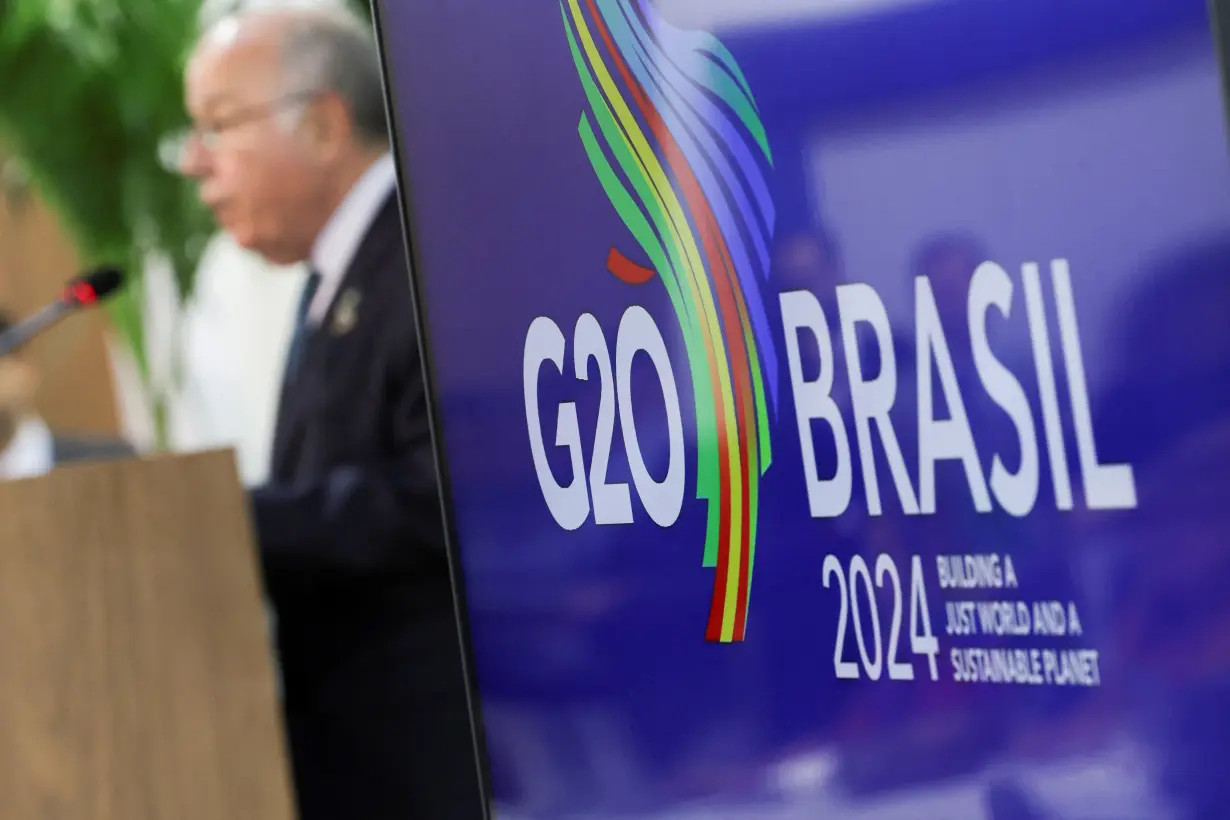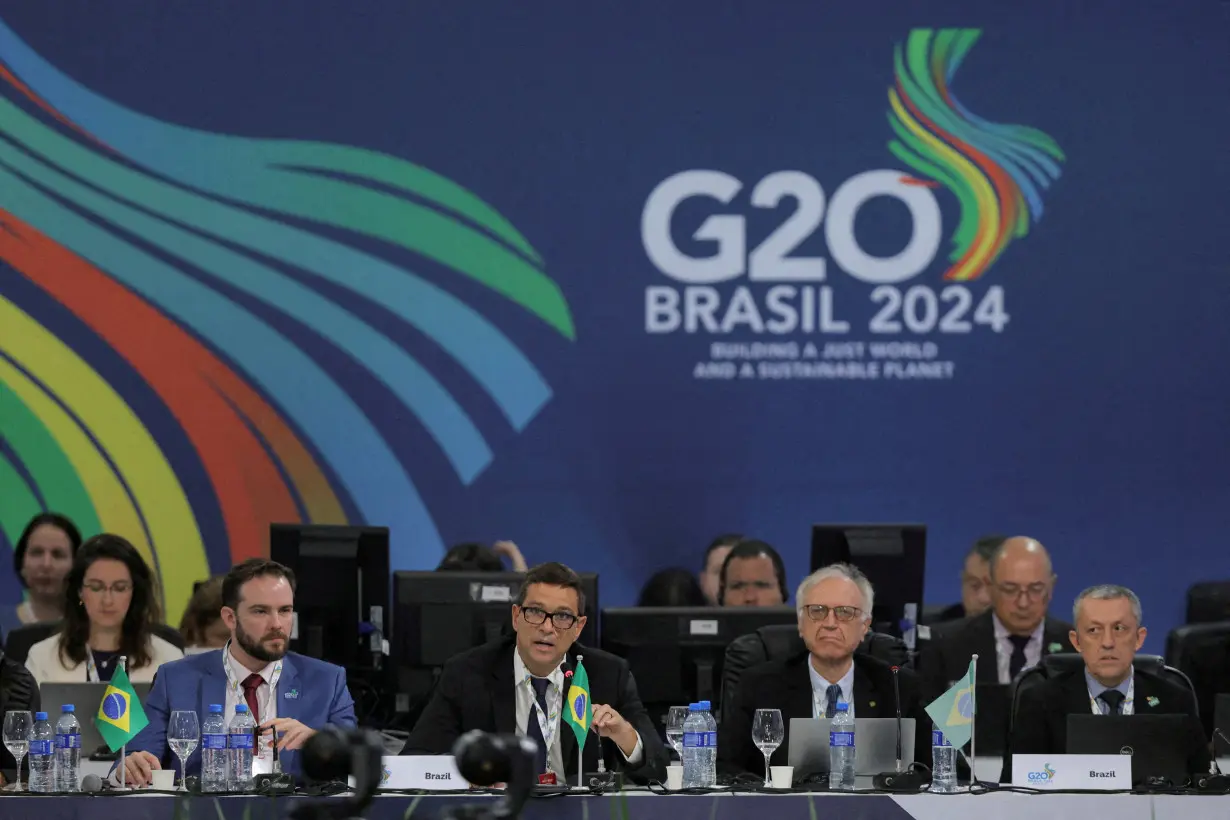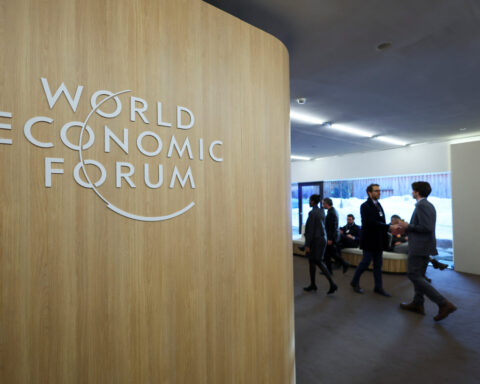By David Lawder and Marcela Ayres
RIO DE JANEIRO (Reuters) -Group of 20 finance leaders are expected to cheer the growing likelihood of a global economic "soft landing" while warning of the risks from unspecified "wars and escalating conflicts," according to a draft communique seen by Reuters on Tuesday.
Speaking to the press, Brazil's G20 finance track coordinator, Tatiana Rosito, said negotiations were ongoing, but she "firmly" believed there would be consensus for an extensive joint statement, reflecting the work done so far.
Rosito said the Brazilian presidency of the group was negotiating an unprecedented separate declaration on international cooperation on taxation, for which she also saw consensus.

This declaration would include the theme of taxing the super-rich, raised by Brazil in its capacity as chair, she said, while she refrained from commenting on which topics faced resistance.
According to the draft communique, the G20 finance ministers and central bank chiefs gathering this week in Rio de Janeiro plan to flag the risks of an uneven global recovery hinging on the persistence of inflation.
"We are encouraged by the increasing likelihood of a soft landing of the global economy, although multiple challenges remain," the draft communique said, referring to a scenario in which inflation is tamed without triggering a painful recession or sharp jump in unemployment.
By avoiding explicit mention of the conflicts in Ukraine and Gaza, diplomats are attempting to sidestep the disagreements between Russia and major Western nations that derailed a consensus at the finance chiefs' gathering in February.
Rosito acknowledged that Brazil will issue a chair statement on geopolitical issues, stressing that these matters will be addressed by diplomats in future meetings.
The communique was still under negotiation and subject to changes, according to people familiar with the drafting process.
"Economic activity has proved to be more resilient than expected in many parts of the world, but the recovery has been highly uneven across countries, contributing to the risk of economic divergence," the draft communique said.
The document flagged risks to the economic outlook that remain broadly balanced, with faster-than-expected disinflation and technological innovations cited among upside risks.
On the other hand, the document noted downside risks such as escalating conflicts, economic fragmentation and persistent inflation keeping interest rates higher for longer.
In line with the Brazilian presidency's focus on global inequality, the draft communique warned that "climate change ... can substantially aggravate inequality challenges," and flagged "debt distress" in "several low- and middle-income countries."
The document also stepped up language calling for a reform of the International Monetary Fund, citing the "urgency and importance of realignment in quota shares to better reflect members' relative positions in the world economy."
A call to resist protectionism, although little changed from Brazil's chair summary in February, was broken out as a standalone paragraph in the draft communique.
TAX THE RICH
The G20 draft statement stopped well short of endorsing Brazil's call for a global tax on billionaires, stating that ministers "take note" of revenue studies commissioned by the International Monetary Fund and by Brazil.
But it references the "Rio de Janeiro G20 Ministerial Declaration on International Tax Cooperation," which it says restates a commitment to tax transparency and fosters "the global dialogue on fair and progressive taxation, with particular attention on ultra-high-net-worth individuals."
The draft marks an advancement from the G7 leaders' statement in June, which calls for the "progressive and fair taxation of individuals" but fails to mention the ultra-rich.
The G20 statement also called on countries to complete negotiations for final language on "Pillar 1" of a two-part global corporate tax deal to reallocate taxing rights on large multinational corporations, which G20 ministers are discussing this week.
This includes language covering companies with more than $20 billion in annual revenues as well as a framework for the "Amount B" method of simplifying the calculation of transfer pricing and tax liability for other smaller multinational firms.
"We are looking forward to signing the Multilateral Convention (MLC) as soon as possible. We encourage the swift implementation of the Two-Pillar Solution for all interested jurisdictions," the draft statement said.
(Reporting by David Lawder in Rio de Janeiro; Additional reporting by Jan Strupczewski in Brussels, Gabriel Araujo in Sao Paulo, Isabel Versiani in Brasilia and Karin Strohecker in London; Editing by Brad Haynes, Paul Simao, Andrea Ricci and Leslie Adler)

 Germany sees meat exports to EU continuing after foot-and-mouth case
Germany sees meat exports to EU continuing after foot-and-mouth case
 Parliament speaker to lead Taiwan delegation to Trump's inauguration
Parliament speaker to lead Taiwan delegation to Trump's inauguration
 German economy contracted 0.2% in 2024
German economy contracted 0.2% in 2024
 Middle East latest: Palestinian prime minister says Palestinian Authority should run Gaza in future
Middle East latest: Palestinian prime minister says Palestinian Authority should run Gaza in future
 Nokia signs multi-year patent license agreement with Samsung
Nokia signs multi-year patent license agreement with Samsung
 Irish parties secure 'comfortable majority' for new government
Irish parties secure 'comfortable majority' for new government
 Bayern Munich signs US youngster Bajung Darboe from LAFC
Bayern Munich signs US youngster Bajung Darboe from LAFC
 Novak Djokovic breaks a tie with Roger Federer for the most Grand Slam matches in tennis history
Novak Djokovic breaks a tie with Roger Federer for the most Grand Slam matches in tennis history
 China's RedNote: what you need to know about the app TikTok users are flocking to
China's RedNote: what you need to know about the app TikTok users are flocking to








